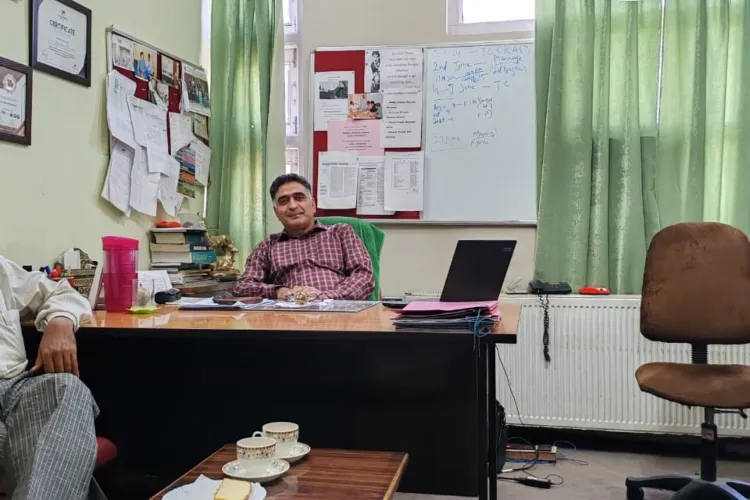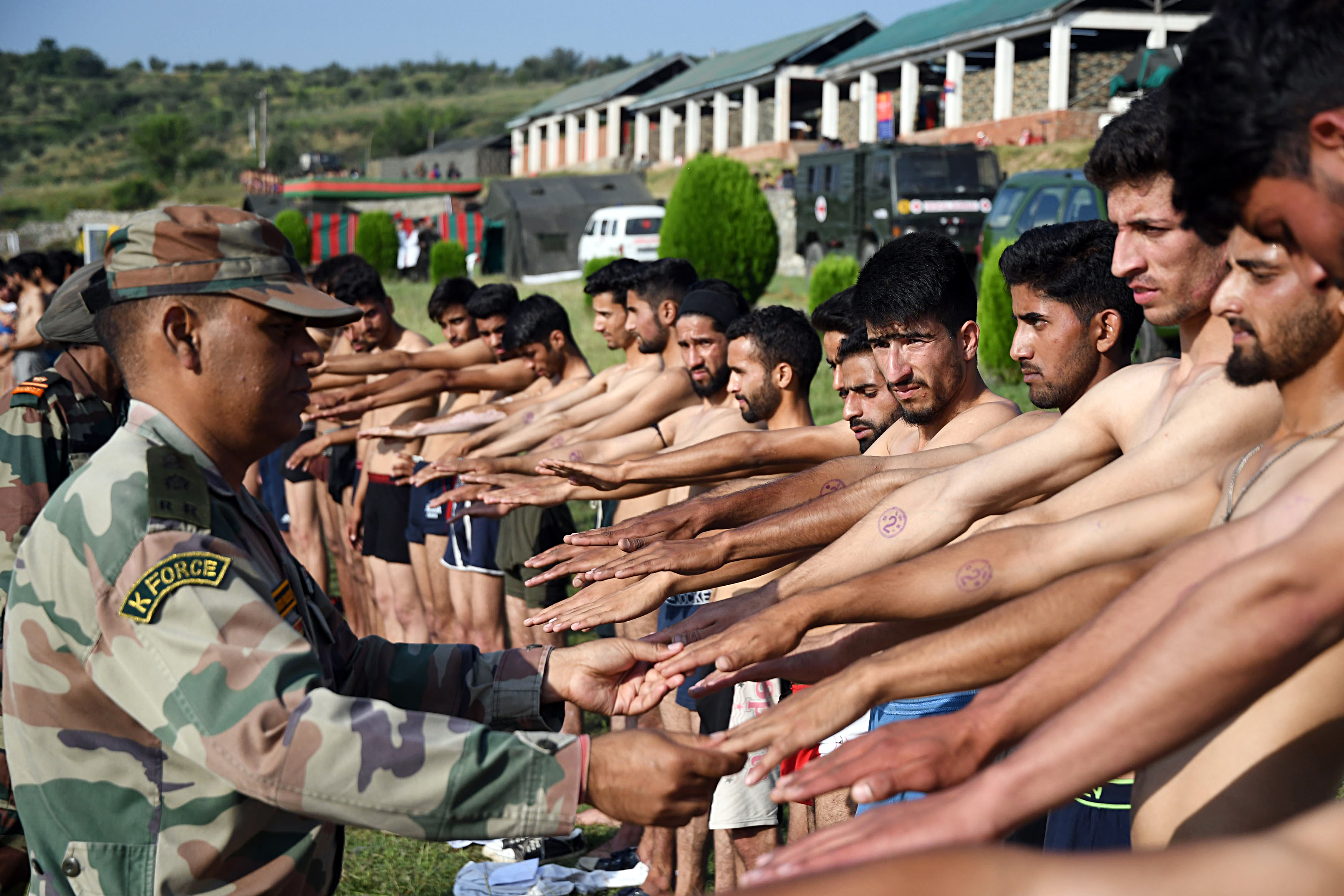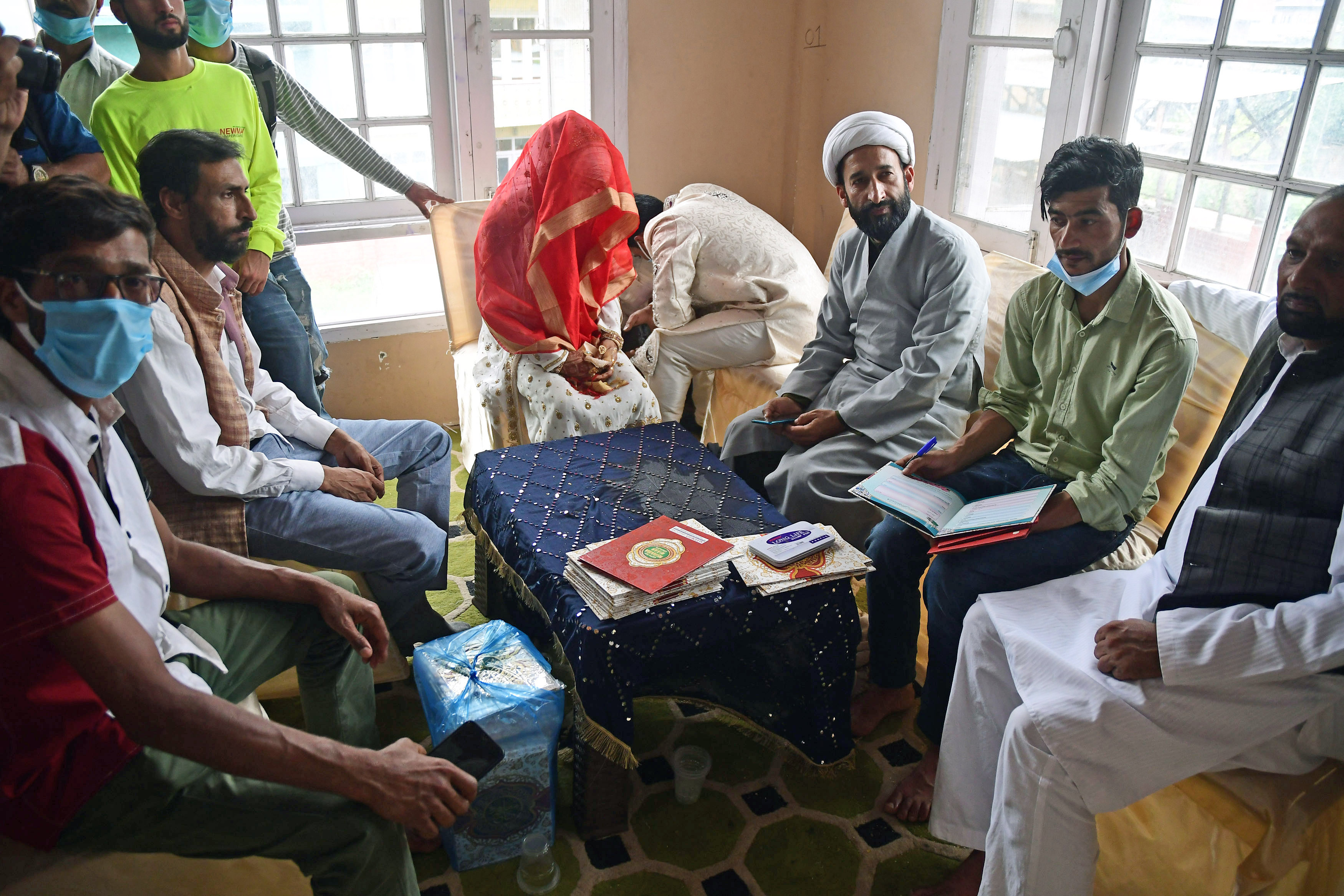.webp)
Ehsan Fazili/Srinagar
While Kashmiri girls and women continue to excel in academics and competitive examinations showing aspirations for a better life, the boys and men are lagging due to violence, social media, and drug addiction. The trend of women’s education gained momentum in the past three decades, resulting in more jobs for women and upsetting the gender equations in the family in the predominantly Muslim valley.
This scenario, on the one hand, impacts the efficiency of women employees since they are still expected to attend to all the traditional duties like household chores and socialization. On the other hand, women with good positions are finding it difficult to get suitable life partners in a society that is still driven by traditional values.
As a result, the marriage age has gone up; and late marriage and even no marriage is becoming a trend.
“We have reached a (disturbing) trend of no marriages from late marriages in Kashmir”, points out Sociologist, Dr. S Khurshid-ul-Islam, Associate Professor at the J&K Institute of Management, Public Administration & Rural Development (J&K IMPARD) Srinagar, an apex Training Institute, while interacting with Awaz-the Voice over the issue of family values in the valley.
He says “Kashmir girls are more empowered in terms of education. We send our girls for education not only to the institutions outside the valley but also abroad for higher studies."
 Dr. S Khurshid-ul-Islam, J&K Institute of Management, Public Administration & Rural Development
Dr. S Khurshid-ul-Islam, J&K Institute of Management, Public Administration & Rural Development
Dr. Khurshid-ul-Islam pointed out that the boys were feeling “left out”, and get latched on to social media, some turning violent or even drug addiction. The result is that educated and qualified girls who get higher professional and administrative positions fail to get their matches on time, the sociology expert said. He spoke about many women with degrees in medical, engineering, or academic streams and holding higher positions, who have crossed the age of 30 waiting for a suitable groom.
“Girls in Kashmir are much better than our boys as we have concentrated more on the girls’ education and development”, Dr. Khurshid, who has edited a book on “Gender Discrimination in the Kashmir Valley” (With Prof B A Dabla & Sundeep Nayak, IAS) and “Kashmiri Muslim Marriage,” said. Referring to the Kashmir situation with particular reference to the violence in 2008, 2010, and 2016, he lamented that “only boys rather than girls were impacted by the violence and restlessness”. The result was that the male population completely remained unchecked, with no discipline, no adherence to norms, resulting in no quality education”, he added.
He recalled periods of unrest when there were calls for celebrating Eid with simplicity and austerity. Mostly young boys were at the forefront of enforcing the dictates. To impose "simplicity” on common citizens, they youth resorted to vandalism of mutton, chicken, bakery, and other shops where people purchased items for festivals.
 An Army doctor examining the hands of youth at a recruitment rally in Kashmir
An Army doctor examining the hands of youth at a recruitment rally in Kashmir
"We have seen the destroyed shopping material on the roadsides at different places on such occasions in which only the young boys were involved in such activities”, he added. Such engagements led to “arrogance” among the boys which impacts everybody and the whole generation, he said.
Dr Khurshid also referred to the mushroom growth of degree colleges all across the UT over the past two decades, which had restricted socialization among the students from distant areas, leading to a negative impact on the youth.
The setting up of educational institutions in large numbers with little scanty staff and infrastructure was also generally impacting the young males in distant areas, he said. “The boys don’t get employment while unchecked constructions are going on over the agricultural lands, leaving the youth to stay away from tending to farms and work hard in other fields”, he said. “The youth have stayed away from farming, family business, and hard work”, he said. It's but natural that the void would be filled by outsiders.
“We have deprived our young generation to do hard work and become earners. We do not inculcate in them the need to work hard and thus they have an escape route by sticking to the mobile phones”, Dr Khursheed commented. He added that with the result the youth would be “useless after a decade”… the next generation not going to read, do any jobs, or work. This is disturbing”, he asserted.
 A Moulvi solmenising nikah of a couple at a mass marriage ceremony in Srinagar
A Moulvi solmenising nikah of a couple at a mass marriage ceremony in Srinagar
In the prevalent social scenario, while Kashmiri women have already moved ahead in professional educational fields, they are faced with empowerment issues. Working women while playing their role in society, have an added responsibility of household responsibilities in the Kashmiri traditional manner.
“This comes in the way of her working” as a civil servant, academician, or professional work, thereby leading to minimal performance at the workplace, it is observed. It also leads to nuclear families, which have become a norm in the valley now, Dr Khurshid-ul-Islam said.
Kashmir valley had its own system of families, mainly the joint families, a practice which gradually started fading in the post-1947 era, and was led by the family elders till recently. “Things have changed after the 1960s and 1970s with the growing communications as we started moving out”, of the valley, Dr Khurshid commented.
“As we started moving out, it affected our values, customs, and culture”, he said and referred to the traditions of marriage functions among Muslims and Pandits in Kashmir. “There was no mismanagement in the marriages but now has been impacted by mainland practices through social media”, he commented. Every aspect of marriages like the dress and customs, has now been impacted by outside practices, both from India and Pakistan, he observed. It consumes a lot of resources as “our socialization has gone out of hand”, he observed.
Due to the unique topography and geography of Kashmir, which remained landlocked with little influx from the outside, it had its system of families having a “special role in upbringing and socialization of kids”, Dr. Khurshid observed.
ALSO READ: Waris Khan is Rajgarh's first Good Samaritan for saving 7 lives
He added that there were checks or hindrances, due to low road and communication levels, on the movement of the majority of people to the outside world. “So the people were restricted to their homes as compared to the outside world”, but now things had gone out of hand due to growing communication links and social media, he said.
